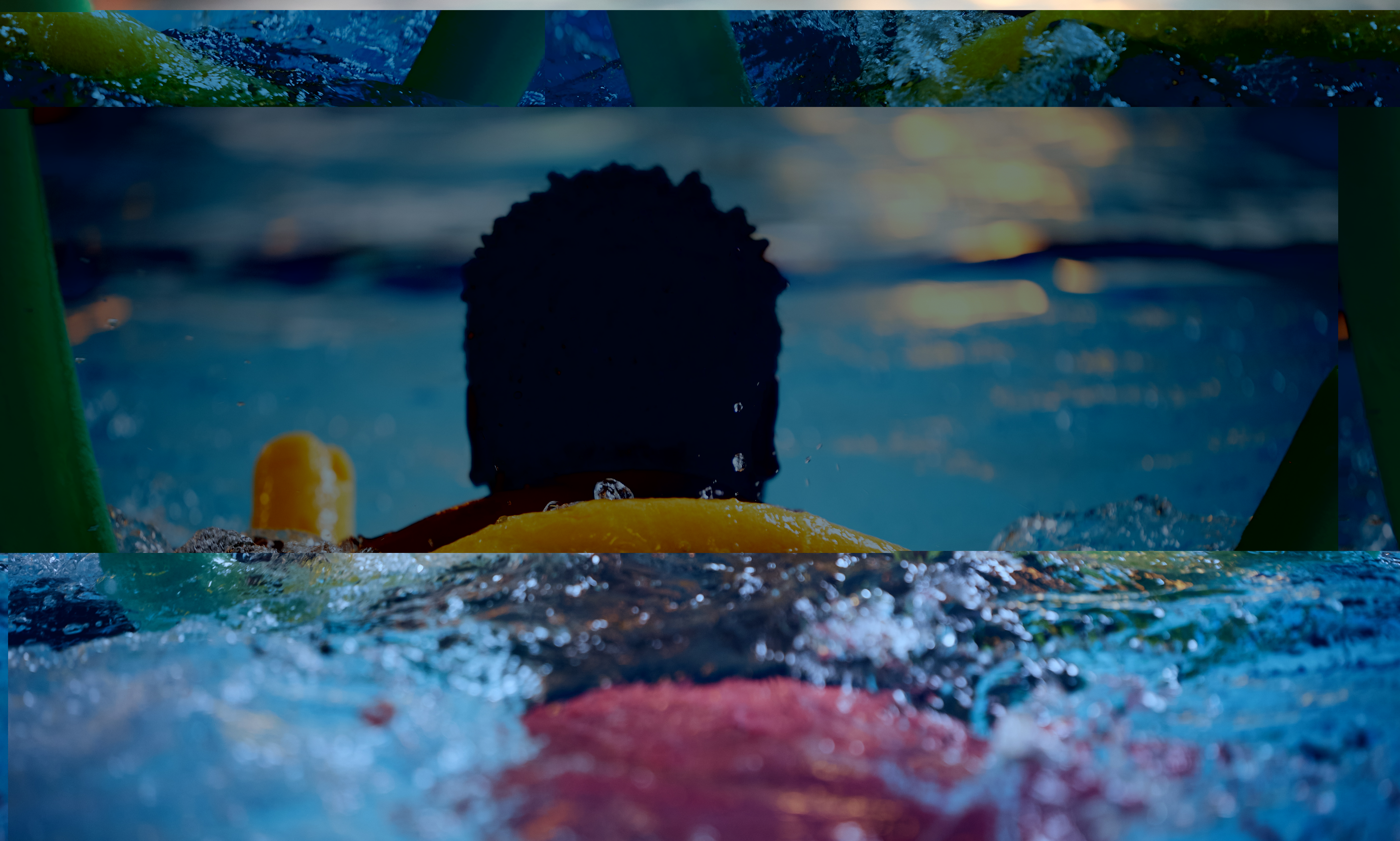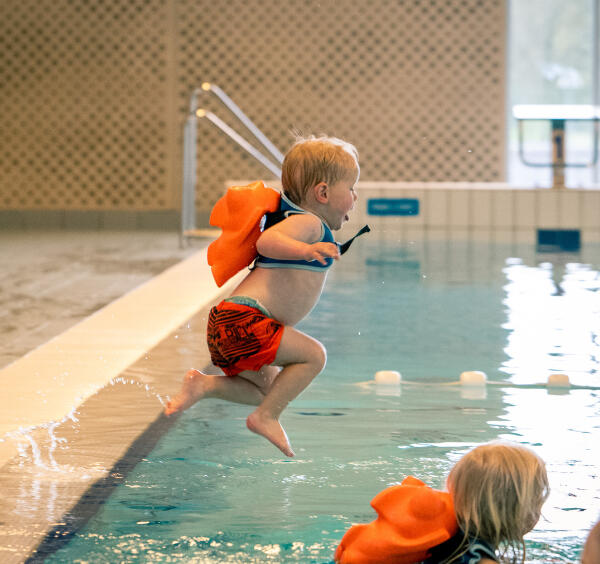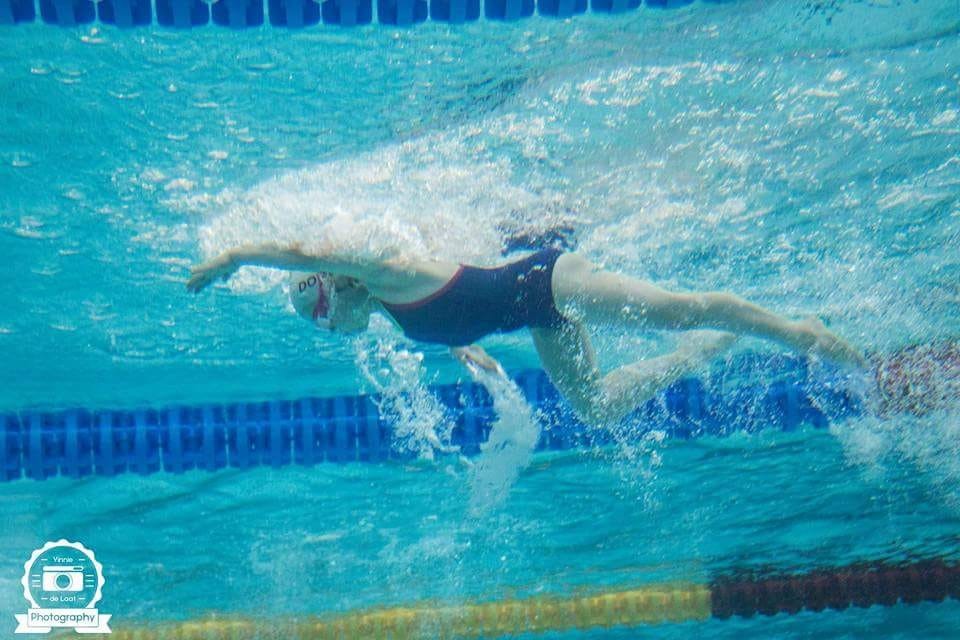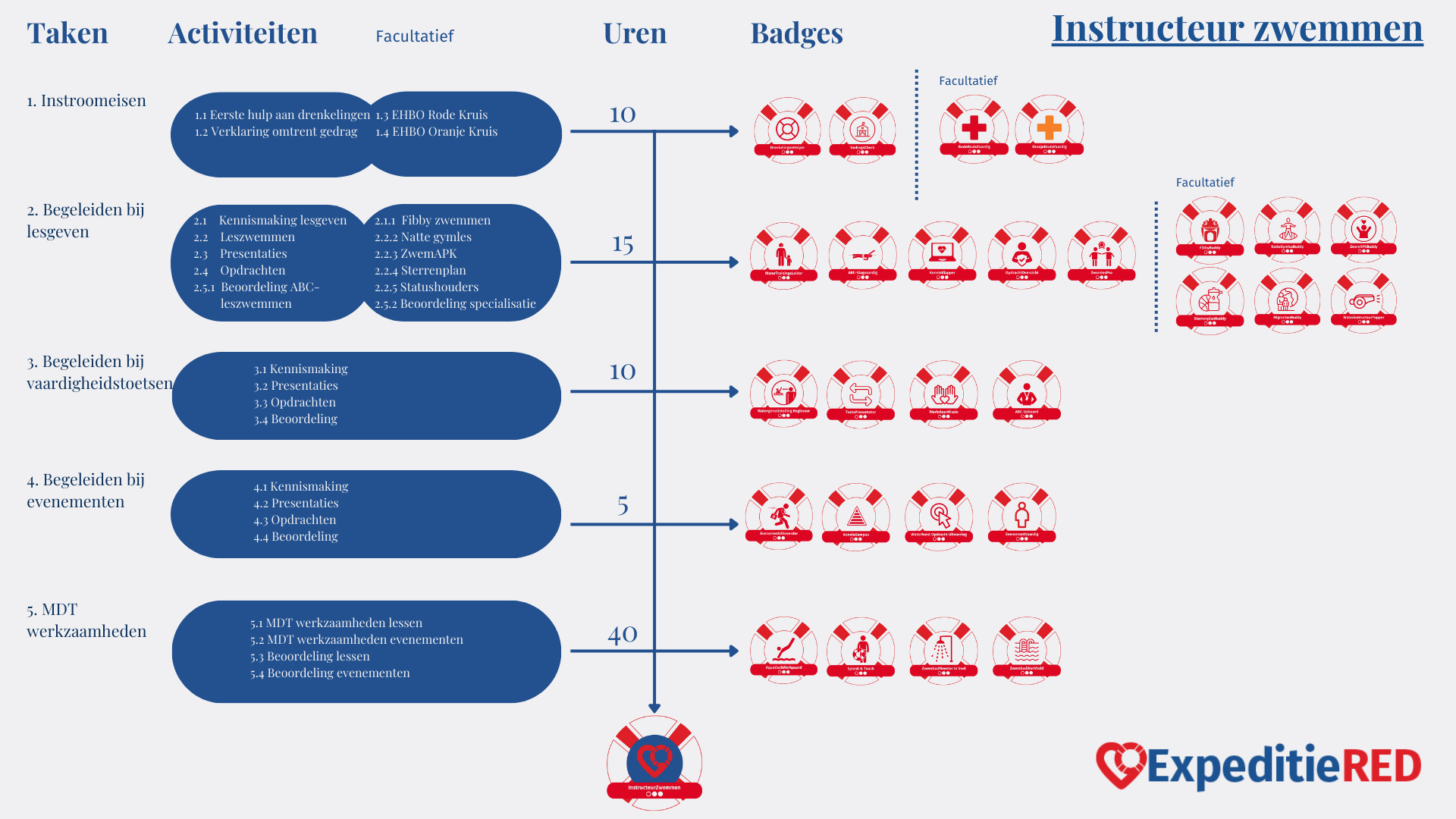26
Swimming Instructor
Swimming Instructor
Content
Your club and all the people who can't swim really need you. Many club activities rely on volunteers. If you love swimming and already have your ABC diploma, you can become an instructor. You'll teach people how to swim and make sure they enjoy it enough to keep coming back. That last part is a big challenge. Many people enjoy being in or around water, but they don't keep up with swimming. As a result, they face significant risks when near water on vacation or if they unexpectedly find themselves in water.
To become an instructor, you need to be at least 16 years old and can participate in a social service program within ExpeditieRED. You'll be trained to become an instructor level 2. This is an officially recognized diploma by NOC*NSF, equivalent to level 2 in the MBO system, if you obtain it through the KNZB (Royal Dutch Swimming Federation). If you don't obtain a KNZB diploma, you'll receive a certificate from us. We adhere to the same quality standards as the KNZB. You'll learn especially how to:
- Manage groups and individuals within groups.
- Create a safe environment.
- Deliver engaging lessons with enthusiasm.
- Teach techniques to children or adults.
- Execute lesson programs.
- Ensure participants have fun and feel satisfied with their progress.
We employ various methods, including games and other challenges, to make it more enjoyable for children or to instill more confidence and enjoyment in older individuals in the water.

A social service time trajectory lasts up to 6 months, during which you teach for about 40 hours per month in the pool. In total, you are active for 80 hours during those 6 months.
Which group you teach depends on your choice. You can teach:
- Very young children together with their parents.
- Children aged 5-9.
- Elderly people who want to resume swimming.
- Status holders who have never learned to swim.
You will be guided in your choices, both during the trajectory and afterwards. What you will do is discussed with the coordinator of ExpeditieRED.

Of course, we collaborate with your club. It needs to align with their goals as well. Together with each club, we assess their needs and desires. We also identify who can mentor you and ensure that you feel comfortable.
You can also train to become a Fibby instructor, who operates outside of the club.
- You'll be working with young children and their parents.
- Your role involves ensuring that both parents and children feel safe and have fun in the water.
- You'll aim to make the lessons a quality time experience for both the parent and the child.

To ensure effective collaboration with associations, ExpeditieRED operates exclusively in Southwest Netherlands.
If you're not a member of an association and have little swimming experience, you can still become an assistant. Additionally, young people working as summer pool attendants can take a Lifeguard course.
Separate training programs and tasks exist for assistant-1, coach-2, and Lifeguard roles.

Activities to complete
Complete the following activities, earn badges and you will see your playlist progress updated
Content
As an instructor, you cannot avoid regularly assessing the progress of your children. In ABC swimming, these assessment moments coincide with diploma swimming. You prepare children for this by systematically practicing all diploma requirements. Naturally, you only let a child proceed to the exam if you truly expect them to pass the diploma. Therefore, just before the exam, you follow the exam protocol step by step to ensure that the children can perform all actions and sustain them. During the assessment, you can encourage the children, reassuring them that they can do it and now they just need to demonstrate it. You ensure that the children feel at ease, clearly explain what they are about to do, ensure that it proceeds orderly and smoothly, and encourage them. Beforehand, you prepare the materials and other necessities and handle the formalities assigned to you.
Get activity badge
ABC Approved Get this badge
When participants have learned something, they are tested at the end to see if they can perform according to a predetermined protocol. A protocol is a list of items that need to be assessed. It is crucial for the participants that the test:
- proceeds in an orderly and efficient manner,
- all necessary materials are prepared and ready,
- starts on time.
You play an important role in ensuring that participants and assessors can carry out their tasks smoothly. You also ensure that the participants are not more nervous than necessary. You reassure them and tell them they can do it. There is a protocol available that systematically assesses everything.
Tasks
Task no.1
Issued by organiser or scanning QR code
The task of teaching is considered complete when the specified subtasks outlined in the protocol are achieved with the indicated results.
Within this task, you perform the following subtasks.
Each subtask is preceded by the expected results:
1. Guiding athletes during skill assessments
- The guidance aligns with the participants.
- Hygiene rules are observed.
- Interaction is sportsmanlike and respectful.
Points to consider:
- Listens to participants.
- Addresses athletes' (sports) behavior.
- Ensures hygiene and care standards are maintained.
- Demonstrates sportsmanlike and respectful behavior towards all involved parties.
- Exhibits exemplary behavior on and around the sports premises.
2. Prepares skill assessments
- Athletes are prepared for the skill assessment.
- The material is prepared for the skill assessment.
Points to consider:
- Ensures athletes are present at the designated location on time.
- Adheres to agreements.
- Ensures the material is in order.
3. Provides instructions
The results of this subtask are as follows:
- The instructions are appropriate to the nature and rules of the skill assessment.
- The instructions are tailored to the level and experience of the athletes.
- The instructions contribute to the development of the athletes and the positive progress of the skill assessment.
Points to consider:
- Provides athletes with instructions regarding the skill assessment.
- Coaches positively.
- Explains and applies relevant rules.
- Ensures athletes comply with the rules. Provides support to athletes after the skill assessment.
4. Evaluates skill assessments and reflects on own actions
The results of this subtask are:
- The evaluation focuses on what went well and what can be improved.
- Self-reflection leads to insights into one's own abilities and areas for improvement in guiding skill assessments.
Points to consider:
- Evaluates the skill assessment together with the athletes.
- Handles regulatory matters before and after the skill assessment.
- Reflects on own actions.
Activities: 25
Started: 39
Completed playlist: 5
Time to complete: 7 days 12 hours 20 minutes
Share:
Organisers
ExpeditieRED
Badge issuer recognized with
Awero not-for-profit organisation manages this platform and develops it together with leading educational organisations. The European Union's programme Erasmus+ granted co-funding for building the first version of this platform. Contact support@awero.org.
Platform
Change to another language:
